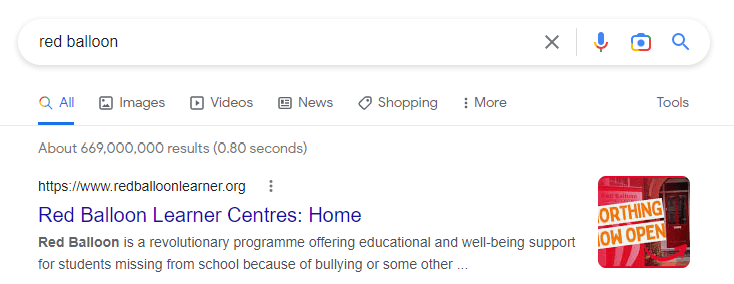Metadata Mistakes & Easy SEO Wins
As anyone who has ever dabbled in Search Engine Optimisation knows well - there is not a one-size-fits-all solution. Instead, there are endless pieces to the SEO pie, each contributing to your site’s general performance and health.
However, some of the quickest wins and lowest-hanging fruit can be found in metadata. Indeed, this is where some of the most common SEO mistakes and misunderstandings occur. Typically, the HoneyBadger SEO copywriting team will commence most new client activity by addressing metadata before progressing to on-page optimisation.
It’s perhaps no surprise that we tend to see the same mistakes made irrespective of a client’s size, industry or audience.
So, what are these
metadata research and copywriting errors, and how can you avoid them? We share all here!
What is metadata, and why is it needed?
First, let’s be clear that in this instance, we’re talking about meta titles and meta descriptions appearing in Search Engine Result Pages. So, if, for example, you run a search for ‘red balloon’ the results of that search list a series of titles and quick-snippet summaries enticing you (or not!) to click through to their page.

This information is referred to as metadata, and it serves as a kind of online billboard notice, working to convert searchers to click-through to the site.
For the purposes of this advice, we will restrict ourselves to discussing metadata writing and not the research. So, let’s now discover how to write metadata descriptions and titles!
Write for humans, not crawlers
Step back from the SEO buzz and remember the overarching principle - everything about SEO is intended to improve the user experience. Yes, you need to follow certain formulae, recommendations and best practices. However, ultimately, you are writing to try and win over a human being. Keep that top of mind, as it can sometimes get lost in the meta minutiae!
Stay within character limits
Your meta title and description must remain within 60 and 155 characters, respectively. Except for the home page, place your brand or business name at the end of your title, separating it from the rest of the copy with a pipe (the | button that sits next to your left-hand shift key on most laptops). If your title is within the character limit before you start writing your brand, don’t worry; go over 60. However, if your title exceeds the limit before the brand is mentioned, go back to the drawing board.
Use your metadata keywords as soon as possible
This makes good, logical sense. You’ve done your research, and you know people interested in this page would be running a search for word X, right? So why bury it down the title or deep into the description where they have to search some more? Shine your spotlight on this word - it’s your beacon for reaching the potential customer!
With very few exceptions, we aim to always start every meta title with our primary keyword. We then make every attempt to place the secondary keyword at the very start of the meta description. Make your
metadata and keywords work for - not against - each other!
Don’t fragment your keywords
Again, you’ve done your research, and you know people are searching for this term. Speak directly to them by using the term verbatim - don’t cut it up and make it harder for their brain to connect the dots. Let’s say you’re a cycling apparel retailer. A relevant keyword example for you might be the term ‘waterproof bike shorts’. Those three words are what you want to run with, not ‘waterproof Lycra bike shorts’ or ‘waterproof men’s bike shorts’ (those will be relevant to other pages on your site).
Importantly, this advice assumes you’ve carried out rock-solid research and you know without a doubt that ‘waterproof bike shorts’ is indeed the perfect primary keyword for you.
Ensure the metadata corresponds to the on-page content
If you’re blindly going through existing metadata and simply tweaking, you could very well miss some major problems. We regularly troubleshoot client pages that are accompanied by irrelevant metadata. It’s actually better to have nothing (and let the Search Engines make their own conclusions) than have something so off-piste it creates instant bounces off the page.
Before writing copy, we visit the page to get a clear understanding of what is on offer and how keywords are relevant.
Edit your copy
Such an obvious one, yet we’ve all seen the typos in SERPs that suggest this step is often overlooked. One of the culprits can be the software you use. For instance, don’t write copy into Excel to make it easy for the Dev team to cut and paste. If you must, write it first in Word and then run a spell check (we recommend Grammarly) and then drop that approved copy into excel.. But never rely solely on artificial intelligence!
Once we’ve written copy, we step away from it for a few hours at least and revisit it later with fresh eyes. This enables us to detect typos that might not, in fact, be typographical errors but are simply the wrong word. For instance, bit instead of big.
Revisit the competition
As part of your research, you would have run a search for the primary and secondary key terms you’re targeting to see who’s ranking for them. Once you’re happy with your
metadata title and description, run that search again and revisit the competition. Now compare your work to theirs and try to view it from the perspective of someone running a search. Which one sounds more enticing? If the answer is theirs, you’re not quite there yet… Remember our very first tip - this is all about winning over the user.
Metadata management best practices
We finish with a suggestion to track all your changes and the dates on which you publish them. You should capture the incumbent metadata before your work is uploaded. Don’t expect changes overnight but do begin to track performance by months two to three. If you’ve done the right research and followed these prompts, you should begin to see positive changes.
Contact us about SEO marketing
We hope these tips help you understand
how to write metadata. Honeybadger specialises in technical and content search engine optimisation. We work directly for clients and serve as a white-label solution for fellow marketing agencies. We’d be delighted to hear from you and happy to provide a no-cost, no-obligation overview and quote, so don’t hesitate to get in touch!
Contact Us
We will get back to you as soon as possible.
Please try again later.





Headquarters
Subscribe to our Newsletter
We will get back to you as soon as possible.
Please try again later.







